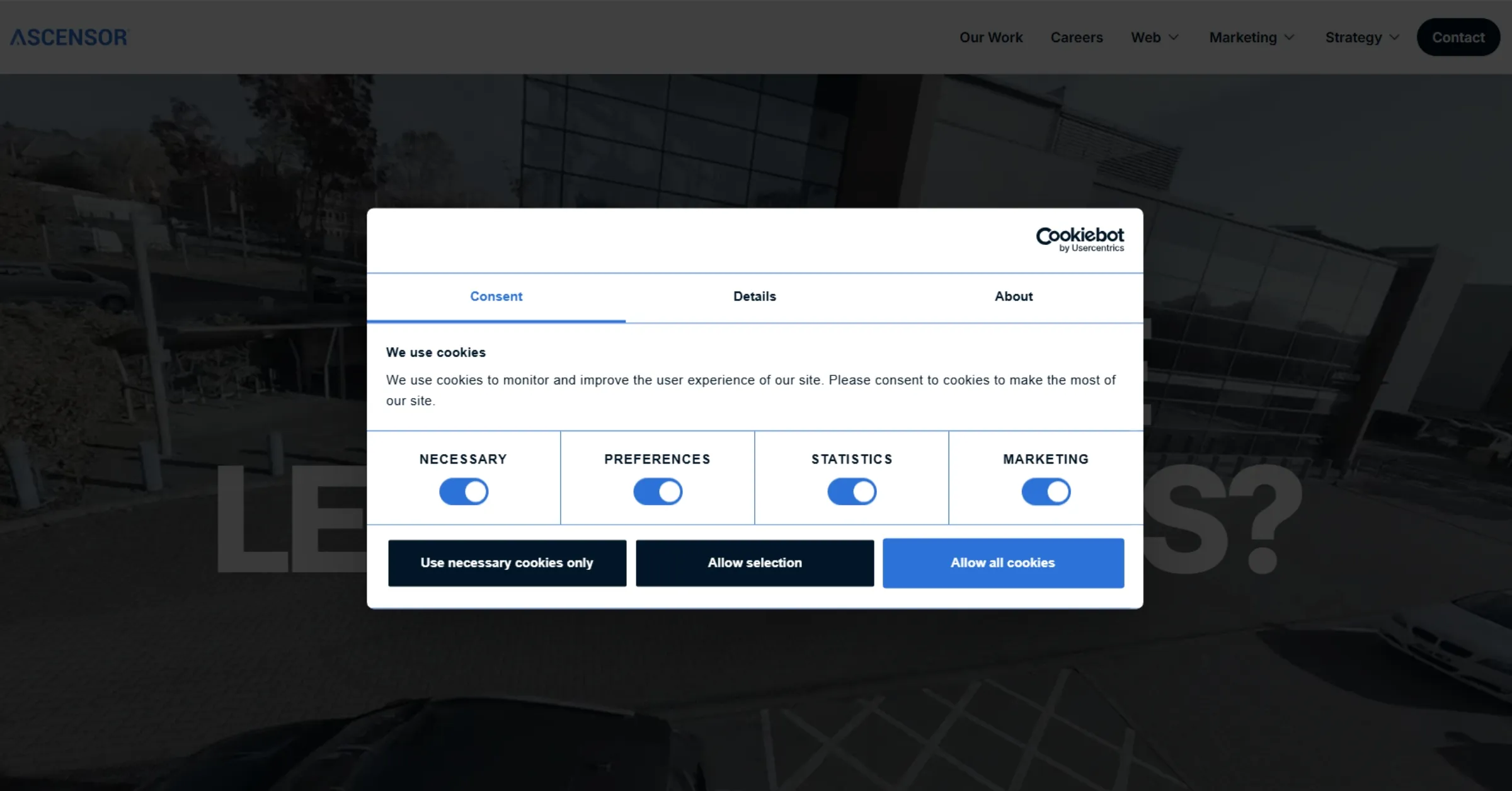Yes, it’s been said many times before, but as we head towards 2026, the digital landscape is about to change dramatically. Really.
Google has confirmed that third-party cookies will be completely phased out in Chrome by mid-2026. For UK businesses that rely on web tracking, advertising, and user analytics, this shift marks a pivotal moment … and preparation is key.
Below, we’ll break down what’s changing, what it means for your marketing and website strategy and how you can get ahead of the curve.
What’s changing, and when?
For years, marketers have relied on third-party cookies to track user behaviour across websites, personalised ads, and measure campaign performance.
But with growing concerns around privacy, major browsers like Safari and Firefox already block these cookies by default, and Chrome is now following suit.
Google has announced that by mid-2026, third-party cookies will be disabled for all Chrome users, completing a rollout that has already started for a subset of users in 2025.
Why it matters for your business
The removal of third-party cookies impacts:
- Retargeting ads: Platforms like Meta and Google Ads will lose key tracking abilities.
- Attribution: Knowing which campaigns drive conversions becomes trickier.
- Personalisation: Dynamic content based on user history becomes harder to deliver.
- Audience targeting: Pre-built audiences based on shared browsing behaviour may disappear.
For UK-based companies, there’s a double whammy: compliance with GDPR means you also need to handle first-party data with care, and the ICO is getting stricter about enforcement.
What you can do right now
This shift isn’t all doom and gloom - it’s an opportunity to build a stronger, privacy-respecting marketing strategy. Here’s how:
1. Go all in on first-party data
Instead of renting data through third-party cookies, own your data.
- Capture emails via lead magnets or gated content.
- Use loyalty programs or preferences centres.
- Invest in CRM tools to consolidate user profiles ethically.
2. Set up server-side tracking
Client-side tracking (via JavaScript) is becoming unreliable. Server-side solutions help:
- Improve data accuracy.
- Reduce ad blockers and cookie restrictions.
- Stay more compliant with UK privacy laws.
Platforms like Google Tag Manager Server-Side, Meta’s Conversions API or custom server setups offer scalable options.
3. Explore privacy-first analytics
Switch to tools designed for a cookieless world:
- GA4 - Google’s replacement for Universal Analytics, built for event-based tracking.
- Plausible or Fathom - Lightweight, cookie-free analytics.
- Matomo (self-hosted) - GDPR-compliant alternative with full data ownership.
4. Test Google’s privacy sandbox
Chrome is introducing alternatives like Topics API and Protected Audience API. These aim to replace cookies while respecting privacy - and advertisers should start testing them now through platforms like Google Ads.
GDPR & UK compliance considerations
With third-party cookies on the way out, it’s tempting to find workarounds. But beware: non-compliant tracking can put your business at risk.
The ICO is clear, even first-party cookies need clear consent when used for marketing or analytics. Your action plan should include:
- Auditing your cookie banner and consent flow.
- Reviewing your data sharing agreements.
- Updating your privacy policy to reflect how data is collected and used.
A practical checklist for UK businesses
Here’s a quick summary of steps to take now:
✅ Audit your current cookie use and analytics setup
✅ Capture more first-party data via CRM, forms, and loyalty features
✅ Set up server-side tracking or use platforms like GA4 with enhanced consent
✅ Evaluate cookieless analytics platforms
✅ Monitor Privacy Sandbox developments
✅ Review cookie consent tools for GDPR compliance
A cultural shift
The cookieless future is a real cultural shift in how we approach marketing, trust and data. Businesses that adapt now will not only protect themselves legally, but also build stronger, longer-term relationships with their audience.
Need help navigating the shift? We help companies future-proof their websites, campaigns, and data strategies. Let’s chat about how we can get you ready for 2026, and ahead of your competitors.












